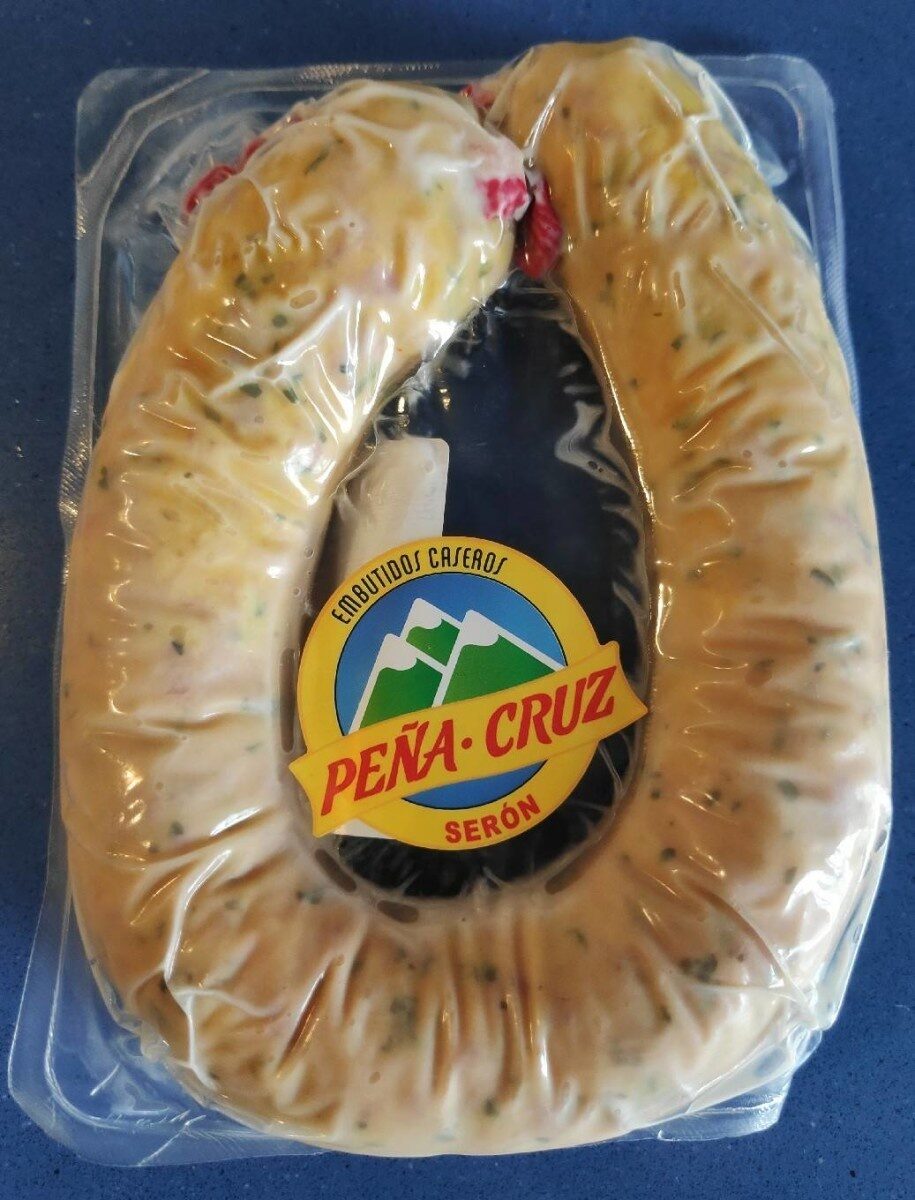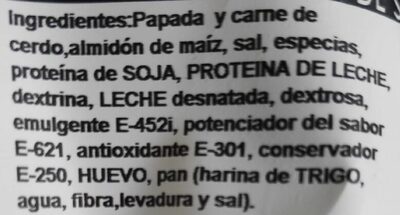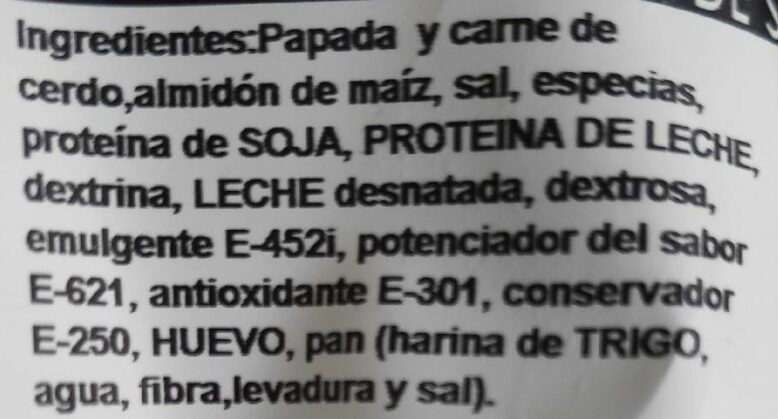Embutido relleno huevo de Serón - Pena Cruz
Aquesta pàgina del producte no està completa. Podeu ajudar a completar-la editant-la i afegint-hi més dades a partir de les fotos ja disponibles, o fent-ne més amb l'aplicació de androide o iPhone / iPad. Gràcies!
×
Codi de barres: 15238955
Marques: Pena Cruz
Categories: Productes amb base de carn, Carns preparades, Embotits
Països on es va vendre: Espanya
Matching with your preferences
Entorn
Empaquetament
Transport
Report a problem
Fonts de dades
Producte afegit per kiliweb
Última modificació de la pàgina del producte per chevalstar.
La pàgina del producte, també editada per roboto-app, yuka.sY2b0xO6T85zoF3NwEKvllBBS_mBmBX2CDbflmqO9Pe0E6W1QM1vwNfBF6s.
Si les dades són incorrectes o incompletes, pot completar o corregir editant aquesta pàgina.










